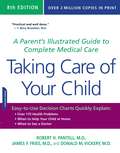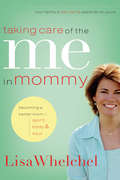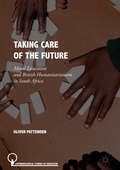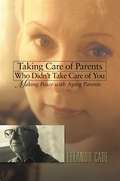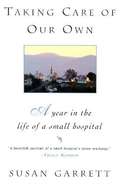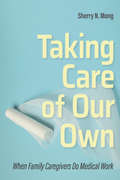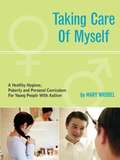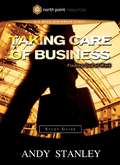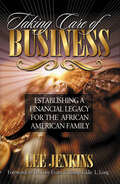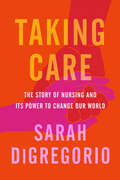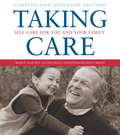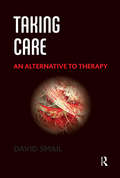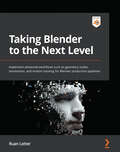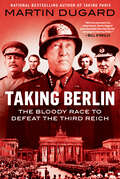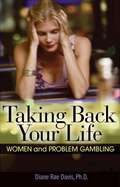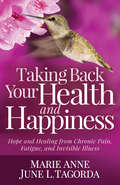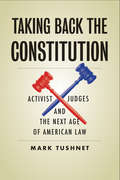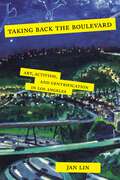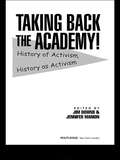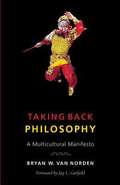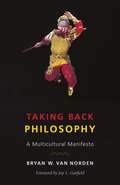- Table View
- List View
Taking Care of Your Child
by Robert Pantell James Fries Donald VickeryOver a million and a half families already use Taking Care of Your Child to help keep their children healthy. Updated with the most recent research and recommendations, this award-winning guide discusses common medical problems, as well as emotional issues such as new siblings and school challenges. The authors even provide forms for medical, growth, and immunization records. And unlike other children's health books, this comprehensive guide is useful from birth through a child's adolescence. Taking Care of Your Child is easy to use, even in a crisis. Simply look up a symptom, and you find a complete explanation of probable causes, how serious they are, and how you might quickly relieve your child's problem at home. Easy-to-follow decision charts show parents exactly when to take a child to see a doctor. This book covers more than 100 common complaints-injuries and allergies, childhood diseases-with especially clear advice on handling emergencies.
Taking Care of Your Child: A Parent's Illustrated Guide to Complete Medical Care
by Donald M. Vickery James F. FriesGuide to medical care for children from pre-natal preparation to adolescent problems. Dispels many myths about children's health and clearly explains procedures to take in response to various symptoms, such as when it is or is not necessary to visit a doctor. Includes growth charts and an index.
Taking Care of the Me in Mommy
by Lisa WhelchelAuthor, speaker, wife, and mom Whelchel delivers a book full of practical tips and advice on how to help moms find lost time in their day to nourish body, soul, and spirit.
Taking Care of the Future: Moral Education And British Humanitarianism In South Africa (Anthropological Studies Of Education Ser.)
by Oliver PattendenTaking Care of the Future examines the moral dimensions and transformative capacities of education and humanitarianism through an intimate portrayal of learners, volunteers, donors, and educators at a special needs school in South Africa and a partnering UK-based charity. Drawing on his professional experience of “inclusive education” in London, Oliver Pattenden investigates how systems of schooling regularly exclude and mishandle marginalized populations, particularly exploring how “street kids” and poverty-afflicted young South Africans experience these dynamics as they attempt to fashion their futures. By unpacking the ethical terrains of fundraising, voluntourism, Christian benevolence, human rights, colonial legacies, and the post-apartheid transition, Pattenden analyzes how political, economic and social aspects of intervention materialize to transform the lives of all those involved.
Taking Care of Parents Who Didn't Take Care of You: Making Peace with Aging Parents
by Eleanor CadeA self-help guide for those who have to take care of their aging parents.Caring for aging parents is difficult-it's exhausting, expensive, time-consuming, and under appreciated. And that's under the best of circumstances, when the caregiver loves and respects his or her aging parent. What happens when adult children are asked to care for elderly parents who were abusive, neglectful, or absent? Here is a compassionate and practical guide to facing the psychological and emotional issues that arise when caring for aging parents. Eleanor Cade offers sound as well as personal accounts from individuals who have made the choice to care for difficult parents. The result is a powerful guide to moving beyond feelings of anger, regret, and grief in order to build healthy new family dynamics based on decency and mercy.Target audience For individuals who are caring for aging, dysfunctional parents, as well as counselors and therapists who work with familiesFeaturesan authoritative resource for baby boomers caring for aging parentsdefines differences between "normal" and "dysfunctional" familiespersonal stories validate the experiences and feelings of readers
Taking Care of Our Own: A Year in the Life of a Small Hospital
by Susan GarrettGarrett's compelling depiction of the hospital in York, Maine, that she administered for six years becomes her occasion to examine what she terms the "fix" today's medical practitioners find themselves in. Noting that market competition has not contained medical costs, she shows us the turf battles within the system as her not-for-profit hospital attempts to reinvent itself to survive. What services should be added to compete in the hospital marketplace? Contract for a traveling CAT scanner owned by a for-profit firm? Institute a cardiology lab, a market niche? The 79-bed, 80-year-old York Hospital is vexed by its perceived mandate to take care of its own. Along with the affluent summer folk, the hospital's "neighbors" include the likes of homeless Tim Bailey, who turns up with chest pains each Christmas Eve and is hospitalized so he needn't be alone for the holidays; Elizabeth Littlejohn, a 19-year-old bulimic with a hospital bill of $76,000, who defaults on her $10 monthly payments and whose dirt-poor family has looked to York Hospital for social services for three generations. As Garrett ruminates on what hospitals should contribute to their communities, she vivifies the daily happenings at her own. And if she doesn't have ready answers, Garrett, who is now a freelance writer, makes us ponder the price of valuing too highly the cold logic of cost-benefit analysis.
Taking Care of Our Own: When Family Caregivers Do Medical Work (The Culture and Politics of Health Care Work)
by Sherry N. MongMixing personal history, interviewee voices, and academic theory from the fields of care work, the sociology of work, medical sociology, and nursing, Taking Care of Our Own introduces us to the hidden world of family caregivers. Using a multidimensional approach, Sherry N. Mong seeks to understand and analyze the types of skilled work that family caregivers do, the processes through which they learn and negotiate new skills, and the meanings that both caregivers and nurses attach to their care work.Taking Care of Our Own is based on sixty-two in-depth interviews with family caregivers, home and community health care nurses, and other expert observers to provide a lens through which in-home care processes are analyzed, while also exploring how caregivers learn necessary procedures. Further, Mong examines the emotional labor of caregiving, as well as the identities of caregivers and nurses who are key players in the labor process, and gives attention to the ways in which the labor is transferred from medical professionals to family caregivers.
Taking Care of Nature: This is our Planet (A First Look At #33)
by Pat ThomasThis reassuring picture book makes children aware of how unique our planet is and why we need to look after it. This book is written from the perspective that we take care of the things we care about and that the rules for taking care of the environment are little different from the rules of everyday living and getting along with others. 'What about you?' questions throughout are useful prompts for understanding things from your child's point of view. Charmingly clear illustrations give readers immediate access to complex situations and feelings Notes for parents and teachers at the back of the book provide valuable advice for how to share this book with your child or class.The superb A First Look At series consists of a number of reassuring picturebooks that give advice and promote interaction between children, parents, and teachers on a wide variety of personal, social and emotional issues Written by a trained psychotherapist, journalist and parent, and illustrated by an experienced children's book artist, this title is part of an acclaimed and successful series of picture-book non-fiction for Early Years. Books in the series give advice and promote interaction between children, parents, and teachers on a wide variety of personal, social and emotional issues. They are excellent tools for teachers to use during classroom discussions.
Taking Care of Myself: A Hygiene, Puberty, and Personal Curriculum for Young People with Autism
by Mary WrobelWinner of an iParenting Media Award! Puberty can be especially tough when young people have autism or other special needs. Through simple stories similar to Carol Gray's Social Stories, author Mary Wrobel teaches caregivers exactly what to say and not say, and shows how you can create helpful stories of your own. Mary addresses hygiene, modesty, body growth and development, menstruation, touching, personal safety, and more. Young students can benefit from self-care skills such as using the toilet, brushing teeth, and washing hands. Parents and teachers should begin teaching these necessary skills as early as possible, even from ages 3-5. The ultimate goal is to maximize the child's potential for independence and lifelong social success. Helpful sections include: Hygiene Health Modesty Growth and Development Menstruation Touching and Personal Safety Masturbation Using A Urinal
Taking Care of Business Study Guide: Finding God at Work
by Andy StanleyWhat Does the Boss Have to Say? Work. For most people, it's a necessity. For some, it's a passion. And for others, it's a four-letter word to be avoided as much as possible. In this DVD and accompanying study guide from North Point Resources, readers will come to grasp the one perspective on work that really matters:God's. He ordained it and He laid out specific guidelines enabling workers to achieve maximum success and fulfillment. In each session, Andy Stanley offers insights on common, specific problem areas people have, from dealing with coworkers and superiors, to boldly living the Christian faith, to balancing work and family. Your Guide from 9:00 to 5:00 Work. For most people, it's a necessity. For some, it's a passion. And for others, it's a four-letter word to be avoided when possible. But for all of us, only one perspective on work really matters: God's. He ordained it and He laid out specific guidelines for us to achieve maximum success and fulfillment while on the job. Designed for small group or personal use, this companion study guide to theTaking Care of BusinessDVD addresses specific problem areas we're all familiar with-from dealing with coworkers and superiors while exemplifying Christ, to balancing our work and home life. This study guide is complete with a leader's guide and six lessons, including easy-to-do exercises and discussion questions. Story Behind the Book A new addition to the North Point Resources brand group from a series taught by Andy Stanley at North Point Community Church .
Taking Care of Business: Establishing a Financial Legacy for Your Family
by Lee JenkinsDespite trillions of dollars spent and the development of welfare programs, poverty has actually gotten much worse. Nationally, 30% of black families live below the poverty line, an increase of 20% since 1969. Lee Jenkins knows that poverty is not corrected by a redistribution of wealth, but by the transformation of people. In his new book, he offers readers comprehensive strategies for setting goals in the areas of family, faith, friends, finances, and fitness.
Taking Care of Business: Establishing a Financial Legacy for Your Family
by Lee JenkinsDespite trillions of dollars spent and the development of welfare programs, poverty has actually gotten much worse. Nationally, 30% of black families live below the poverty line, an increase of 20% since 1969. Lee Jenkins knows that poverty is not corrected by a redistribution of wealth, but by the transformation of people. In his new book, he offers readers comprehensive strategies for setting goals in the areas of family, faith, friends, finances, and fitness.
Taking Care: The Story of Nursing and Its Power to Change Our World
by Sarah DiGregorioIn this sweeping cultural history of nursing from the Stone Age to the present, the critically acclaimed author of Early pays homage to the profession and makes an urgent call for change. Nurses have always been vital to human existence. A nurse was likely there when you were born and a nurse might well be there when you die. Familiar in hospitals and doctors’ offices, these dedicated health professionals can also be found in schools, prisons, and people’s homes; at summer camps; on cruise ships, and even at NASA. Yet despite being celebrated during the Covid-19 epidemic, nurses are often undermined and undervalued in ways that reflect misogyny and racism, and that extend to their working conditions—and affect the care available to everyone. But the potential power of nursing to create a healthier, more just world endures.The story of nursing is complicated. It is woven into war, plague, religion, the economy, and our individual lives in myriad ways. In Taking Care, journalist Sarah DiGregorio chronicles the lives of nurses past and tells the stories of those today—caregivers at the vital intersection of health care and community who are actively changing the world, often invisibly. An absorbing and empathetic work that combines storytelling with nuanced reporting, Taking Care examines how we have always tried to care for each other—the incredible ways we have succeeded and the ways in which we have failed. Fascinating, empowering and significant, it is a call for change and a love letter to the nurses of yesterday, today, and tomorrow.
Taking Care: Self-Care for You and Your Family
by Michael B. JacobsSo simple to use, so essential to your health-a must for every household. More than 2 million readers already turn to the original edition ofTaking Carefor quick, accurate answers to their everyday health questions. Not feeling well? Coping with a recent diagnosis? Not sure if a situation is an emergency? Whether you’re single, raising a family or enjoying your retirement years, you’ll come to rely on these valuable features: -A detailed guide to first aid and emergencies -Tips on healthy living, prevention and screenings -Information on hundreds of symptoms and illnesses -Easy-to-follow decision charts for choosing care -Chapters on mental health, sexual health, pregnancy, complementary medicine, workplace health and more -Highlighted children’s health information -Extensive listing of health-related organizations and Web sites -A guide to preparing for your doctor visits
Taking Care: An Alternative to Therapy
by David SmailTaking Care established the author as an important social and political analyst whose background happened to be in clinical psychology. In this work the author develops the analysis of mental illness, and psychology in general, in the contexts of society, power and interest. People's experience is embodied in the world in which they exist. Notwithstanding the claims of some, psychology cannot, in the same way that magic cannot, change the nature of that experience fundamentally. At best, psychotherapy might provide a degree of understanding about that limitation. The historical relationship between psychology and magic is examined. The socio-political and economic structures of the society in which we live have the greatest influence on mental health, as on many other matters. Therefore, the individuation of focus in psychology on personal relationships, happiness, and sexuality can significantly miss the point. We need to develop political and social structures that 'take care' of people, to enable them to have meaningful 'public' lives.
Taking Blender to the Next Level: Implement advanced workflows such as geometry nodes, simulations, and motion tracking for Blender production pipelines
by Ruan LotterA comprehensive guide with key images printed in color to learning motion graphics, character modeling and rigging, creating dynamic hair and clothes, 3D scanning using photogrammetry, and moreKey FeaturesLearn how to use geometry nodes to create motion graphics and dynamic scenesUnderstand organic 3D modeling and how to create and animate your own 3D charactersUse physics simulations to create clothing and hair for characters that interact with forces like windBook DescriptionIf you're ready to start exploring the more advanced workflows and processes in Blender to create intricate 3D models, then Taking Blender to the Next Level is for you.This book focuses on a few different VFX-related workflows such as geometry nodes, organic modeling, 3D camera tracking, photogrammetry, sculpting, compositing, and physics simulations. You'll learn how to use geometry nodes to create dynamic motion graphic scenes as well as perform 3D scanning of real-world objects using photogrammetry. You'll also find out how to model, rig, and animate your own 3D characters from scratch. Next, you'll progress to using simulations to break objects apart and then use cloth and hair simulations to add realism to your 3D creations. Finally, you'll go over the final render settings and export your 3D animation masterpiece as a video.By the end of this Blender book, you'll be able to model your own 3D characters, objects, and landscapes; rig, animate, and texture your characters; 3D track live-action footage; and composite your 3D characters into live-action scenes.What you will learnUse geometry nodes to quickly create complex 3D scenes and motion graphics rendersCreate realistic textures using physically based rendering materials3D scan real-life objects using a normal camera and clean up the model using BlenderUnderstand how to model, rig, and animate your own 3D charactersUse rigid body simulations to create dynamic scenesUnderstand how to perform 3D tracking within BlenderBecome well-versed with compositing 3D renders into live-action footageWho this book is forThis Blender 3D book is for 3D modelers, texture artists, character and technical animators, matchmove artists, compositors, and anyone interested in learning advanced concepts in Blender. Motion graphics artists will also benefit from this book. A solid understanding of 3D concepts and the Blender UI is needed to grasp the concepts present in this book.
Taking Berlin: The Bloody Race to Defeat the Third Reich
by Martin DugardFrom Martin Dugard, #1 New York Times bestselling coauthor of Bill O'Reilly's Killing series, comes a nonfiction thriller about the race between the Allies and Soviets to conquer the heart of Nazi Germany.&“Gripping, popular history at its page-turning best.&”—Alex Kershaw • &“With the precision of a smart bomb, Martin Dugard puts the reader directly into the campaign to destroy Hitler.&”—Bill O&’Reilly • &“Spectacular . . . Taking Berlin is certain to be a massive hit with fans of both history and thrillers alike.&”—Mark Greaney, bestselling author of the Gray Man series Fall, 1944. Paris has been liberated, saved from destruction, but this diversion on the road to Berlin has given the Germans time to regroup. The American and British armies press on from the west, facing the enemy time and again in the Hurtgen Forest, during the Market Garden invasion, and at the Battle of the Bulge, all while American general George Patton and British field marshal Bernard Montgomery vie for supremacy as the Allies&’ top battlefield commander. Meanwhile, the Soviets begin to squeeze Hitler&’s crumbling Reich from the east. Led by Generals Zhukov and Konev, the Red Army launches millions of soldiers, backed by tanks, artillery, and warplanes, against the Germans, leaving death and scorched earth in their wake, pushing the Wehrmacht back toward their fatherland. As both the Anglo-American alliance and the Soviets set their sights on claiming the capital city of Nazi Germany, Churchill seeks to ensure Britain&’s place in a new world divided by Roosevelt&’s America and Stalin&’s Soviet Union. With a sweeping cast of historical figures, Taking Berlin is a pulse-pounding race into the final, desperate months of the Second World War and toward the fiery destruction of the Thousand-Year-Reich, chronicling a moment in history when allies become adversaries.
Taking Back Your Life: Women and Problem Gambling
by Diane Rae DavisUp-to-date, guided support to help women with a gambling problem achieve the rewards of a hopeful life, free of addictionUp-to-date, guided support to help women with a gambling problem achieve the rewards of a hopeful life, free of addiction Today, more than five million women in the United States struggle with problem gambling, and this number continues to increase as casinos, online card rooms, and other venues continue to multiply.In this groundbreaking book, addiction expert Diane Rae Davis, Ph.D., offers women everywhere the support they need to face this debilitating problem and take the necessary steps to regain control of their lives. Offering information on preventing relapse, finding support groups, and healing relationships with loved ones, Davis uses the most up-to-date research and methods for treatment to help women gamblers:identify what makes them vulnerable to addictionrecognize the costs and consequences of gambling behaviorssee what it means to "hit bottom"determine how to begin and continue on the road to recovery using a virtual toolbox of techniquesEach section of this user-friendly guide highlights real success stories of women who have gone through the same issues and treatment strategies, and who have discovered the rewards of beating a gambling problem and reclaimed hope for their lives.Diane Rae Davis, Ph.D., is a professor in the School of Social Work and Human Services at Eastern Washington University. She has researched and written extensively on addiction and recovery, specifically with regard to women in recovery from compulsive gambling.
Taking Back Your Health and Happiness: Hope and Healing from Chronic Pain, Fatigue, and Invisible Illness
by Marie Anne TagordaTaking Back Your Health and Happiness helps those who suffer from chronic pain discover the source of their pain to achieve self-healing and happiness within. As a nurse for over ten years, an energy healer, and spiritual intuitive healer, Marie Anne June L. Tagorda has seen the effects illness has on people and their loved ones. She herself has had her share of chronic pain and invisible illness. In Taking Back My Health and Happiness, she shares her process for achieving self-healing and happiness. Within Taking Back My Health and Happiness, those who suffer from chronic pain learn:The source and meaning of their chronic pain and illnessHow to deal with their condition in order to live happy and be free to enjoy life How to effectively communicate with loved ones to include them in their care and not be burdened by it The obstacles blocking their healing (and how to overcome them) Tips for healing their body while healing their relationships One’s illness does not define them, and they can begin the process to becoming happy, healthy, and free to enjoy life today with Taking Back Your Health and Happiness.
Taking Back Trump's America: Why We Lost the White House and How We'll Win It Back
by Peter NavarroAs seen on Tucker Carlson As heard on Mark Levin In this follow-up to the breakout bestseller In Trump Time, Peter Navarro explains why Trump lost the White House in 2020 and how he will win it back in 2024—and none too soon.Steve Bannon, the chief architect of Trump&’s 2016 win, describes Taking Back Trump&’s America as &“a brass-knuckled insider&’s account of the merciless 2020 fall and miraculous 2024 rise of the White House of Trump.&” In Peter Navarro&’s telling—he was in all of the rooms where it happened—Trump&’s fall may be laid squarely at the feet of a coterie of incompetent and disloyal &“bad personnel&” inside the White House. They continually sought to undermine the commander in chief they putatively served and included everyone from Attorney General Bill Barr, Treasury Secretary Steve Mnuchin, and National Economic Council Directors Gary Cohn and Larry Kudlow, to National Security Advisors H.R. McMaster and John &“Dr. Strangelove&” Bolton, Jared &“Rasputin&” Kushner, the Four-Star Traitors in Generals John Kelly and Jim Mattis, and four of the worst chiefs of staff in White House history. This confederacy of predatory globalists, Never-Trump Republicans, wild-eyed Freedom Caucus nut jobs, and self-absorbed Wall Street transactionalists would constantly delay, disrupt, and deter a set of populist, economic, nationalist, and &“tough on China&” actions and policies that would have otherwise carried Donald Trump to a landslide victory.
Taking Back the Constitution: Activist Judges and the Next Age of American Law
by Mark TushnetHow the Supreme Court’s move to the right has distorted both logic and the Constitution What Supreme Court justices do is far more than just “calling balls and strikes.” The Court has never simply evaluated laws and arguments in light of permanent and immutable constitutional meanings. Social, moral, and yes, political ideas have always played into the justices’ impressions of how they think a case should be decided. Mark Tushnet traces the ways constitutional thought has evolved, from the liberalism of the New Deal and the Great Society to the Reagan conservatism that has been dominant since the 1980s. Looking at the current crossroads in the constitutional order, Tushnet explores the possibilities of either a Trumpian entrenchment of the most extreme ideas of the Reagan philosophy, or a dramatic and destabilizing move to the left. Wary of either outcome, he offers a passionate and informed argument for replacing judicial supremacy with popular constitutionalism—a move that would restore to the other branches of government a role in deciding constitutional questions.
Taking Back the Boulevard: Art, Activism, and Gentrification in Los Angeles
by Jan LinThe promises and conflicts faced by public figures, artists, and leaders of Northeast Los Angeles as they enliven and defend their neighborhoods Los Angeles is well known as a sprawling metropolis with endless freeways that can make the city feel isolating and separate its communities. Yet in the past decade, as Jan Lin argues in Taking Back the Boulevard, there has been a noticeable renewal of public life on several of the city’s iconic boulevards, including Atlantic, Crenshaw, Lankershim, Sunset, Western, and Wilshire. These arteries connect neighborhoods across the city, traverse socioeconomic divides and ethnic enclaves, and can be understood as the true locational heart of public life in the metropolis. Focusing especially on the cultural scene of Northeast Los Angeles, Lin shows how these gentrifying communities help satisfy a white middle-class consumer demand for authentic experiences of “living on the edge” and a spirit of cultural rebellion. These neighborhoods have gone through several stages, from streetcar suburbs, to disinvested neighborhoods with the construction of freeways and white flight, to immigrant enclaves, to the home of Chicano/a artists in the 1970s. Those artists were then followed by non-Chicano/a, white artists, who were later threatened with displacement by gentrifiers attracted by the neighborhoods’ culture, street life, and green amenities that earlier inhabitants had worked to create. Lin argues that gentrification is not a single transition, but a series of changes that disinvest and re-invest neighborhoods with financial and cultural capital. Drawing on community survey research, interviews with community residents and leaders, and ethnographic observation, this book argues that the revitalization in Northeast LA by arts leaders and neighborhood activists marks a departure in the political culture from the older civic engagement to more socially progressive coalition work involving preservationists, environmentalists, citizen protestors, and arts organizers. Finally, Lin explores how accelerated gentrification and mass displacement of Latino/a and working-class households in the 2010s has sparked new rounds of activism as the community grapples with new class conflicts and racial divides in the struggle to self-determine its future.
Taking Back the Academy!: History of Activism, History as Activism
by Jim Downs Jennifer ManionFirst published in 2004. Routledge is an imprint of Taylor & Francis, an informa company.
Taking Back Philosophy: A Multicultural Manifesto
by Bryan w. Van NordenAre American colleges and universities failing their students by refusing to teach the philosophical traditions of China, India, Africa, and other non-Western cultures? This biting and provocative critique of American higher education says yes. Even though we live in an increasingly multicultural world, most philosophy departments stubbornly insist that only Western philosophy is real philosophy and denigrate everything outside the European canon. In Taking Back Philosophy, Bryan W. Van Norden lambastes academic philosophy for its Eurocentrism, insularity, and complicity with nationalism and issues a ringing call to make our educational institutions live up to their cosmopolitan ideals.
Taking Back Philosophy: A Multicultural Manifesto
by Bryan W. Van NordenAre American colleges and universities failing their students by refusing to teach the philosophical traditions of China, India, Africa, and other non-Western cultures? This biting and provocative critique of American higher education says yes. Even though we live in an increasingly multicultural world, most philosophy departments stubbornly insist that only Western philosophy is real philosophy and denigrate everything outside the European canon. In Taking Back Philosophy, Bryan W. Van Norden lambastes academic philosophy for its Eurocentrism, insularity, and complicity with nationalism and issues a ringing call to make our educational institutions live up to their cosmopolitan ideals. In a cheeky, agenda-setting, and controversial style, Van Norden, an expert in Chinese philosophy, proposes an inclusive, multicultural approach to philosophical inquiry. He showcases several accessible examples of how Western and Asian thinkers can be brought into productive dialogue, demonstrating that philosophy only becomes deeper as it becomes increasingly diverse and pluralistic. Taking Back Philosophy is at once a manifesto for multicultural education, an accessible introduction to Confucian and Buddhist philosophy, a critique of the ethnocentrism and anti-intellectualism characteristic of much contemporary American politics, a defense of the value of philosophy and a liberal arts education, and a call to return to the search for the good life that defined philosophy for Confucius, Socrates, and the Buddha. Building on a popular New York Times opinion piece that suggested any philosophy department that fails to teach non-Western philosophy should be renamed a “Department of European and American Philosophy,” this book will challenge any student or scholar of philosophy to reconsider what constitutes the love of wisdom.
